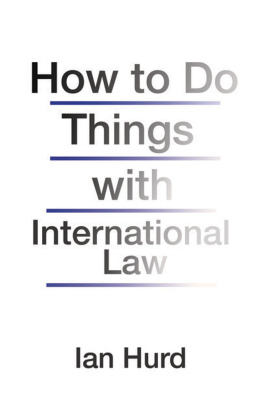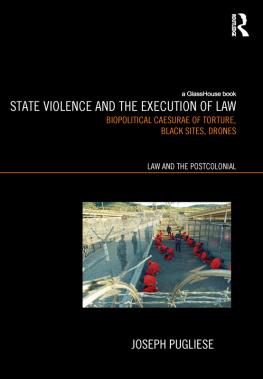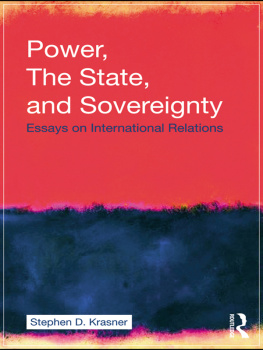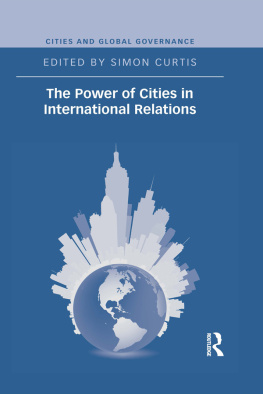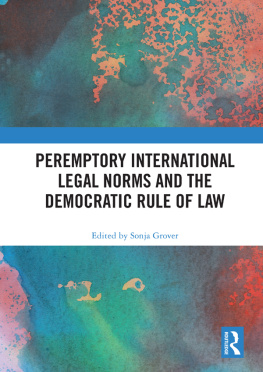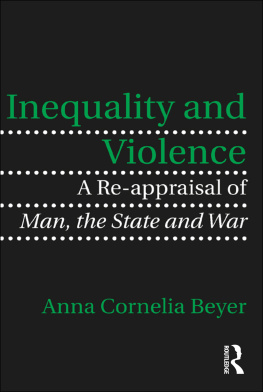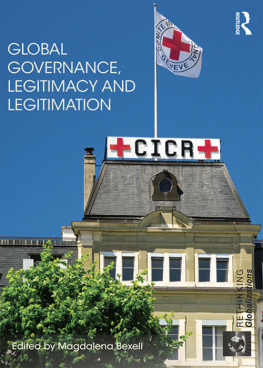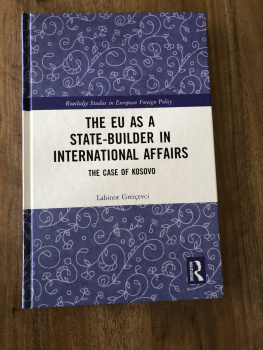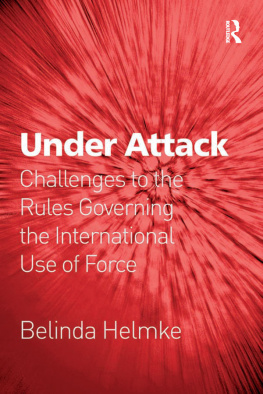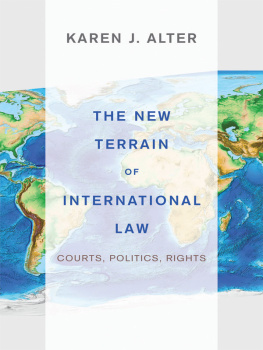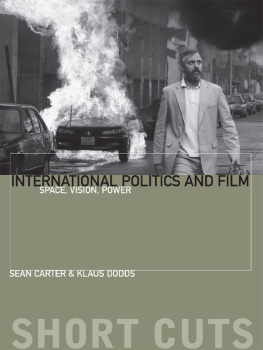Copyright 2017 by Princeton University Press
Published by Princeton University Press,
41 William Street, Princeton, New Jersey 08540
In the United Kingdom: Princeton University Press,
6 Oxford Street, Woodstock, Oxfordshire OX20 1TR
press.princeton.edu
All Rights Reserved
Library of Congress Cataloging-in-Publication Data
Names: Hurd, Ian, author.
Title: How to do things with international law / Ian Hurd.
Description: Princeton, New Jersey : Princeton University Press, 2017. | Includes bibliographical references and index.
Identifiers: LCCN 2017019523 | ISBN 9780691170114 (hardback)
Subjects: LCSH: International law. | Rule of law. | BISAC: POLITICAL SCIENCE / International Relations / Treaties. | LAW / International. | POLITICAL SCIENCE / Government / International.
Classification: LCC KZ3410 .H87 2017 | DDC 341dc23 LC record available at https://lccn.loc.gov/2017019523
British Library Cataloging-in-Publication Data is available
This book has been composed in Adobe Text Pro and Gotham
Printed on acid-free paper.
Printed in the United States of America
10 9 8 7 6 5 4 3 2 1
ACKNOWLEDGMENTS
This book explores the politics of international law. It examines a series of recent controversies in international affairs, and draws out their legal and political threads in order to think about the political powers of international law. I do not seek to account for all corners of international law, or give a prescriptive case for what should or shouldnt be done. Those in search of an answer to the question of whether to be for or against international law may be disappointed. Instead, the book focuses on international law as political practice.
I have been thinking about the law and politics of international affairs for some time in conversation with numerous friends, colleagues, and contributors to the field. I am particularly grateful to Robert Howse, Jens David Ohlin, Jennifer Mitzen, Frdric Mgret, Elizabeth Shakman Hurd, Jutta Brunne, Nisha Fazal, Mary Ellen OConnell, Karen Alter, Nicholas Rengger, Antje Weiner, Anthony Lang, Michael Barnett, Mara Pillinger, Jean-Marc Coicaud, Vincent Pouliot, Mikael Rask Madsen, Michael Zrn, Helen Kinsella, Shirley Scott, Nikolas Rajkovic, Ingo Venzke, Scott Veitch, G. John Ikenberry, Anne-Marie Slaughter, Martha Finnemore, Chris Reus-Smit, Andreas Fllesdal, Terry Halliday, Jothie Rajah, Charlotte Epstein, Philippe Sands, Greg Shaffer, Michael Byers, Jos Alvarez, Ian Johnstone, Jacob Katz Cogan, Carne Ross, and Rosa Brooks.
I became interested in the international rule of law and its politics during a sabbatical year at the Woodrow Wilson School at Princeton University in 2010. I thank Helen Milner and the Niehaus program for making that possible. I enjoyed short stays at WZB (the Berlin Social Science Center) in 2012 and EHESS in Paris in 2013, both of which were helpful in the early formulation of the book. Im grateful to Michael Zrn at WZB and Liora Isral at EHESS and their colleagues. The book was finished in 201617, which I spent as a visiting scholar at the American Bar Foundation. Terry Halliday, Jothie Rajah, and Ajay Mehrotra and their colleagues make the foundation an ideal environment for thinking about the practical life of law and legalization. I appreciate as well the many audiences and panels that have listened to parts of this project; this book would not exist without their helpful input.
Throughout my work, Northwestern University has been a friendly home. In addition to the support of the political science department, I am grateful to the Buffett Institute for Global Studies. I have benefited in countless ways from the intellectual community and professional opportunities that the Buffett Institute sustains. Its Working Group on International Organization and International Law is a long-running forum for research on politics and law in international affairs. The Equality Development and Globalization Studies group at Buffett supported a book workshop at which Jennifer Mitzen, Jens David Ohlin, Rob Howse, and Fred Mgret gave their time and energy to this project.
I have been lucky to work with engaging and thoughtful graduate students at Northwestern. In the closing stages of this project, I benefited particularly from conversations with Erin Lockwood, Swati Srivastava, Sidra Hamidi, Josh Freedman, Ceyda Erten, and Lena Trabucco.
The final manuscript was greatly improved by the close editorial attention of Simon Waxman. Cindy Milstein did a terrific job of copyediting. I appreciate also the contributions of Eric Crahan, my editor at Princeton University Press, and Chuck Myers, his predecessor there, for their input as the project advanced.
My most important debt in this, as in everything else, is to Beth, Ally, Sophie, and Audrey. I am lucky to be on this adventure with them.
The following publishers have given permission to reprint sections from previously published work.
Parts of appeared in The International Rule of Law and the Domestic Analogy, Global Constitutionalism 45, no. 3 (2015): 36595.
A version of appeared as The Permissive Power of the Ban on War, European Journal of International Security 2, no. 1 (2016): 118.
Material from appeared in Torture and the Politics of Legitimation in International Law, in The Legitimacy of International Human Rights Regimes: Legal, Political, and Philosophical Perspectives, ed. Andreas Fllesdal, Johan Karlsson Schaffer, and Geir Ulfstein (Cambridge: Cambridge University Press, 2013), 16589.
Introduction
Well what would you do if you were the king? asked the prince.
I would do absolutely nothing
And who then would govern?
The Laws!
FRANOIS QUESNAY TO THE DAUPHIN, CITED IN BERNARD HARCOURT, THE ILLUSION OF FREE MARKETS
Aerial drones, humanitarian intervention, cyberattacks, torture. The big debates in world politics today are inseparable from international law. Controversy over what is and is not legal is standard fare in international conflicts, and commitment to rule of law is presumed a marker of good governance. Rule following is said to lead naturally to more desirable collective outcomes.
This legalization of global affairs is widely viewed as a progressive advance on earlier conditions. No longer must self-interest, coercion, and power politics dominate decision making. Now the rule of law is cited as the remedy for human rights abuses, domestic dictatorship, international war, and other problems.
In this book, I look at how the concept is used in world politics and to what ends. My goal is to better understand the power and politics of international law. I show that international law is properly seen not as a set of rules external to and constraining of state power but rather as a social practice in which states and others engage. They put the political power of international law to work in the pursuit of their goals and interests.
Governments use international law to explain and justify their choices. This is both constraining and permissive. On the one hand, states must fit their preferences into legal forms. On the other hand, they are empowered when they can show their choices to be lawful. Thus international law makes it easier for states to do some things (those that can be presented as lawful) and harder to do others (those that appear to be unlawful).

